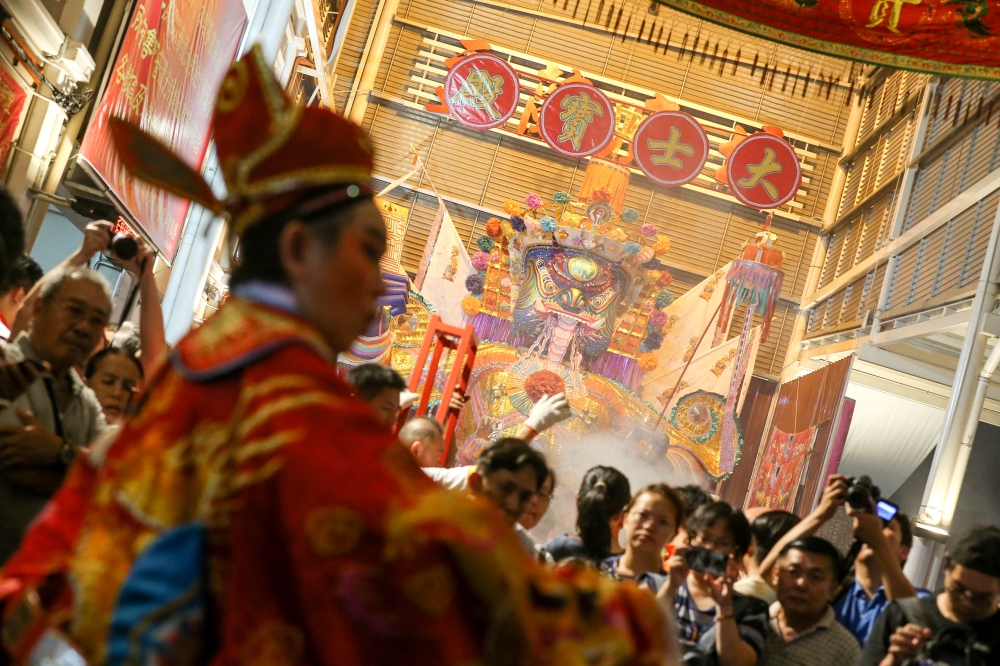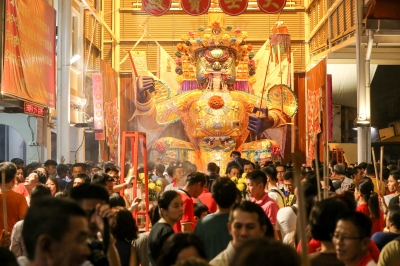BUKIT MERTAJAM, Aug 17 — Every year, Jalan Pasar here becomes a focal point for tens of thousands of Chinese of Taoist and Buddhist faiths who gather here to celebrate the Hungry Ghost Festival or Phor Thor.
In the Chinese lunar calendar, the seventh month is considered the “ghost month”, with the Hungry Ghost Festival falling on the 15th day. This year, the ghost month started on Aug 4 and ends on Sept 2. Tomorrow is the 15th day which will see devotees performing rituals to worship the deity of spirits Di Guan Da Di.
According to Datuk Seri Peh Weng Khim, chairman of the Bukit Mertajam Yu Lan Festival Organisation, the Hungry Ghost Festival has been celebrated for over 130 years here.
He said according to Taoist beliefs, the “gates of hell” are opened on the first day of the seventh month, allowing the spirits of long-deceased ancestors to come out in search of food and entertainment.
“The celebration here is lively… for the past 28 years, our organisation has provided a special place next to the Tua Pek Kong Temple here to enable devotees to perform their prayers,” he told Bernama.
Peh said devotees also bring food and offerings to be presented to the deity of hell Tai Su Yeah — whose statue measuring 8.96-metre-high and made of bamboo and colourful paper has been placed there — as well as to the spirits of their ancestors and spirits with no families.
He said the temple site has remained open all day and night since Aug 6, with over 1,000 devotees visiting it on weekdays. During the weekend, the number increased eightfold.
“Visitors come not only from all over Malaysia but also from abroad including China, Hong Kong, Taiwan, Singapore, Thailand and Indonesia,” he said, adding the rituals done there include burning hell bank notes “for the use of the spirits”.
An opera group from Thailand has also been performing at the temple site from 7.30 pm to 11 pm nightly to entertain the “deity of hell and wandering spirits”.

A file photograph shows an opera performance for the Hungry Ghost Festival in Bukit Mertajam, Penang. — Picture by Sayuti Zainudin
Peh said every year they would order a giant statue of the deity of hell Tai Su Yeah, custom-made by an artisan in Berapit here, and place it inside a tent to allow devotees to pray.
He also said the statue will be paraded in the middle of Jalan Pasar on the night of Aug 20, where it will be burned and “sent back to the other world”, a ritual witnessed by tens of thousands of devotees.
He said although the festival is associated with ghosts, it is also aligned toward educating the younger generation about devotion and doing good deeds as well as respecting, obeying and caring for their ancestors and others.
He added there are also several rules to observe during the celebrations such as ensuring food placed by the roadside for spirits is not stepped on, kicked or scattered.
Devotees are also advised not to stay out late at night, hang clothes to dry at night, enter forests or wear red and black clothing, and avoid playing on the beach or lakeside. — Bernama







